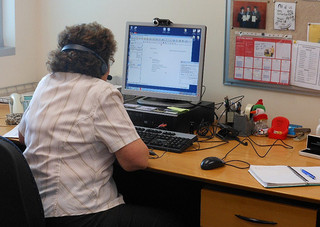If you’ve never had to apply for government assistance such as welfare, food stamps, disability, or unemployment benefits, the world of federal aid might be very foreign to you. But in reality, about half the population of the United States lives in a household where at least one person gets some form of government aid. Many of these people are seniors, veterans, and the very poor, and the number has been on the rise ever since the economic meltdown of 2008. With all the questions in the news about who is abusing the system, you might start to wonder what the government is doing to prevent that abuse. Much of the responsibility falls to trained eligibility workers, who conduct interviews and investigations to see who should get help and how much. It’s not your average government job, but for many people, it’s a fascinating and important area to work in.
1. Screening Applicants

